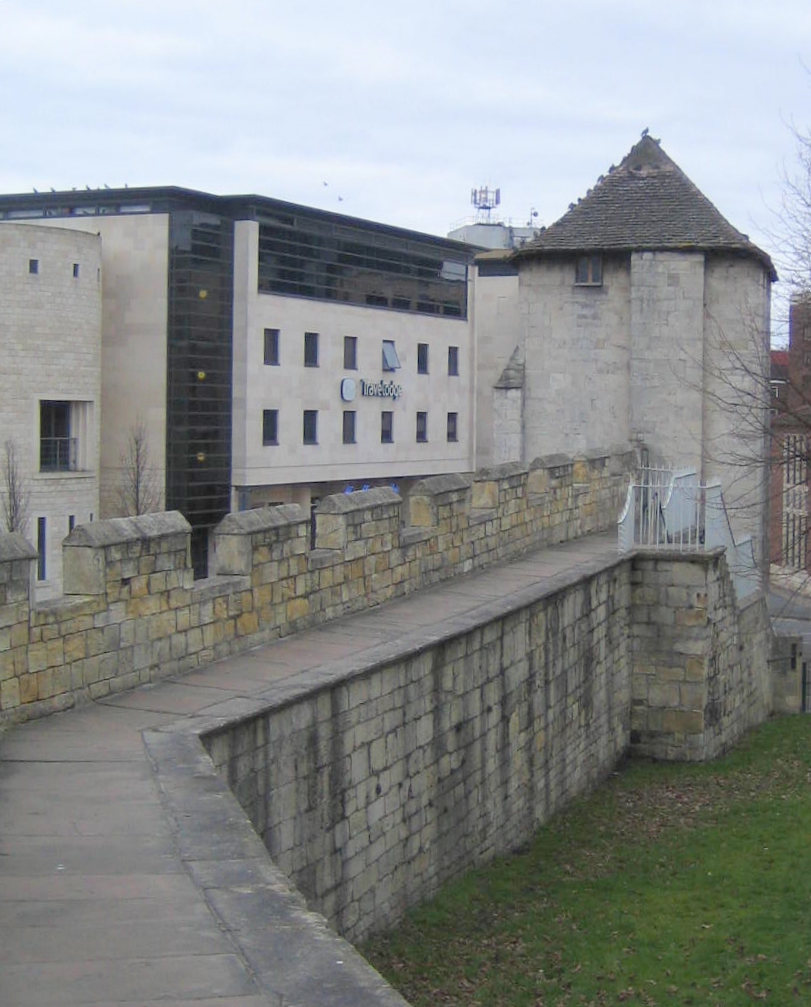|
|
Send us email (it's safe to enable JavaScript on this page) |
The walls end for a while as we have two rivers to cross in about 100 yards: the Foss and the Ouse which will join each other about a quarter mile south of where this picture was taken. To the left is a modern building but note the newer rounded turret attempting to try to blend in with the walls!
To the right is Fishergate Tower and (not visible) the ruins of a postern. (A postern is a small gate as opposed to the major gates at the four bars of York.) The tower replaced a true postern in the early 1500s slightly to the south where the Foss flows into the Ouse. Except for the flat roof, this is pretty much the original building. (A flat roof would have leaked anyway within 500 years).
There is evidence (somewhat rare for York) here of an old Anglo-Saxon settlement on the Foss dating from the 8th century; Today, the Fishergate area elects Greenies to city council and annually hosts the UK snooker championships, during which specific Anglo-Saxon words are still vigorously used.
For sure such words were used when the Normans came to these banks: While William the Conqueror's army may have surprised Anglos in the south in 1066, as capital of the North, York had two years to work up resistance while William solidified his hold on the south. From 1068 through 1070, the Yorkies kept rebelling; William responded by building two forts and dammed up the Foss river to create a moat around them. Eventually he burnt down houses near his castles to keep the rebellious Yorkies from using them. Unfortunately the fire spread through the rest of York and destroyed houses, the library, and the Minster. Despite all that, the Yorkers captured the forts anyway and tore down these wooden structures.
The result was that York suffered the worst of any area in the Norman invasion, losing about a third of its housing. The damming of the Foss often flooded the Fishergate area as well. York, the second city of the realm and a great religious center, was reduced to 3 monks. William then raised taxes! This would be as silly as expecting Iraqis to pay back the costs of their invasion with their oil revenues -- not that anyone would ever think of that.

Lost? If so, click here for a good map of the York Walls (in PDF format)
For more narrative on York, see our description web page by clicking here.
|
|
Send us email (it's safe to enable JavaScript on this page) |